Thursday, February 2
| 10:30–11:30 a.m. | "Early 20th Century Modernism: Igor Stravinsky," Prof. Robert Greenberg [Solveig Holmquist], Kaneko Auditorium
|
| 11:30 a.m.–12:30 p.m. | "More About and From Stravinsky," Solveig Holmquist, Kaneko Auditorium The Symphony of Psalms is a three-movement choral symphony composed by Stravinsky in 1930 during his neoclassical period, commissioned by Serge Koussevitsky to celebrate the 50th anniversary of the Boston Symphony Orchestra. The symphony derives its name from the use of Psalm texts in the choral parts. Unlike many pieces composed for chorus and orchestra, Stravinsky said that “It is not a symphony in which I have included Psalms to be sung. On the contrary, it is the singing of the Psalms that I am symphonizing.” We will consider that statement, and examine this work, in which Stravinsky simultaneously draws upon Russian tradition and breaks with the past. (Notably, the score omits clarinets, violins, and violas, higher-register instruments usually considered the mainstay of standard orchestral writing.) The first recording was made in Paris by Stravinsky himself in February, 1931, and the review noted “The choir, throaty, full-blooded, darkly, inwardly passionate, sing with liturgical conviction and intensity in a memorable performance.”
|
| 1:30 – 2:30 p.m. | "Pastry and Vinegar–Sweetness and Loss: Prose, Poetry and Persistence," Lois Rosen [Anne Bowden], Kaneko Auditorium
Two of the most exciting events in Lois Rosen’s literary life happened this year. In April, for the debut Liars’ League PDX at Literary Arts, the actress, Clara Hillier, presented Lois’s story, “The Hollywood Life.” The story is available to listen to and read online here. Lois’s story “Herring” won the 2016 Kay Snow Award in Fiction and has been accepted for publication by Timberline Review. Besides being a fiction writer, Lois has been described in Salem as a “famous local poet.” At the first poetry workshop that Lois took from Richard Hugo at PSU’s Haystack Program in the 1970’s, he told her, “These aren’t poems, but a nice person wrote them.” Nevertheless, she persisted and, lo and behold, produced actual poems the second time she studied with him. Lois has published poems and stories in over a hundred literary journals; her two poetry books, Nice and Loud (Tebot Bach, 2015), Pigeons (Traprock Books, 2004), and online. A review of Nice and Loud appears online. A founder of Salem’s Peregrine Poets, she leads the Trillium Writers Group and the ICL Writers Group. Three of her poems may be found online at Elim Entum Journal. |
| 2:30–3:30 p.m. | "Taking Writing to Tough Places," Marilyn Johnston [Anne Bowden], Kaneko Auditorium Poet Robert Frost once said, “A poem begins as a lump in the throat, a sense of wrong…” For those who are incarcerated, a blank sheet of paper and a pencil can be a transformative tool to help express what could not be said and to, as in the lens of a camera, gradually sharpen the fuzzy image of themselves and their lives. Join this session with Marilyn Johnston who will talk about her work with incarcerated youth, as she takes us through the process of helping them tell their story on the blank page, then help them to form their raw words into poetry. This presentation will include selected slides of the photo-poems created by the youth at the Oak Creek Correctional Facility, as well as audio recordings as they read their work aloud.
|
Tuesday, February 7
| 10:30 –11:30 a.m. | "The End ofGlobal Pox: American Eradication of Smallpox in the Cold War Era," Bob Reinhardt [Phil Sperl], ***Montag Den*** NOTE CHANGE IN VENUE In May of 1980, the World Health Organization declared that smallpox had been eradicated. But in July of 2014, three forgotten vials of the smallpox virus were found at a laboratory in Maryland. How is this possible, and how worried should we be? The End of a Global Pox: America and the Eradication of Smallpox in the Cold War Era explains the causes, development, and legacy of global effort to eradicate smallpox in the 1960s and 1970s—a remarkable transnational attempt to master the nonhuman world that both expressed and transcended the global Cold War and the American liberal state’s emphasis on modernization and development. The eradication program that evolved in this context ultimately produced a world free of smallpox as a disease, yet still haunted by the presence of the smallpox virus in high-security laboratories and in the imagination of people throughout the globe.”
|
| 11:30 a.m.– 12:00 p.m. | "Willamette Heritage Center," Bob Reinhardt [Phil Sperl], ***Montag Den*** NOTE CHANGE IN VENUE In 2010, the Marion County Historical Society (formed in 1950) and the Mission Mill Museum Association (formed 1964) merged to become the Willamette Heritage Center (WHC). The WHC was meant to be both the successor to those organizations as well as to become something more than the sum of their two parts – to become a hub and center for history and heritage in the Mid-Willamette Valley. How has the WHC continued and built on the legacies of its two predecessor organizations? What stories of the past are told within the walls of the old Kay mill and the historic homes of Jason Lee, John Boon, and others? What mysteries lie inside the archives of the WHC? How does the WHC balance the various and perhaps conflicting needs to preserve the past, critically interpret the past, and engage and perhaps even entertain the public? This lecture will discuss the challenges and purposes of both history broadly and the Willamette Heritage Center specifically. For Bob H. Reinhardt's bio. see above. |
| 1:30–3:30 p.m. | “ANZAC Marches, and the March of Time: Children’s Literature and the Legacy of Gallipoli,” Ruth Feingold [Mark Kasoff], Kaneko Auditorium
In April of this year Dr. Ruth Feingold was selected to be the Dean of the College of Liberal Arts at Willamette. A professor of English, with appointments in women’s and gender studies and Asian studies, Ruth teaches a broad range of classes in literature and culture of the 19th-21st centuries. Her research centers on national identity, place and space in postcolonial nations — with a primary focus on New Zealand and Australia, but periodic forays into southern Africa, India and contemporary multi-ethnic Britain. Ruth had been on the faculty of St. Mary’s College of Maryland since 1999 and was serving as associate dean of faculty and academic affairs at the time of her selection by Willamette. |
Thursday, February 9
| 10:30–11:30 a.m. | "Early 20th Century Modernism: Arnold Schoenberg," Prof. Robert Greenberg [Solveig Holmquist], ***Montag Den*** NOTE CHANGE IN VENUE
|
| 11:30 a.m.–12:00 p.m. | "Let's Consider Schoenberg's Place and Legacy," Solveig Holmquist, ***Montag Den*** NOTE CHANGE IN VENUE This followup to Greenberg’s final lecture in the current series will consider the many interesting and somewhat contradictory aspects of Schoenberg’s life, his approach to his own work, and his position/role in music history. Ample time will be allowed for all of us to weigh in. Perhaps more than any other composer before him, Schoenberg inspires and reveals one’s own (subconscious?) philosophy of the guiding forces of composers’ work. In preparation for the discussion, please think about these random facts: • His approach is described as being one of the most influential of 20th century musical thought, YET one musicologist has said that his work is usually defended rather than listened to.
|
| 1:30 – 2:30 p.m. | "Women and Cancer in Low-Resource Countries: Daunting Challenges, Promising Opportunities," Vivien Tsu [Kay Reichlin], Kaneko Auditorium Along with all the other health problems women face in countries with poor infrastructure and limited resources--such as malaria, AIDS, TB and obstetric complications-- there is a huge burden of cervical cancer and a rapidly growing rate of breast cancer. Low-income countries are poorly equipped to handle these cancers even though there are now cost-effective and feasible solutions becoming available. Dr. Tsu will talk about the burden of women's cancers in low and middle income countries and discuss the challenges and potential interventions that could reduce the unnecessary suffering and deaths.
*PATH=Program for Appropriate Technology in Health |
| 2:30–3:30 p.m. | “Beyond the Clinic and the Lab: Social Scientific Insights into the Study of Cancer,” Joyce Millen [Kay Reichlin], Kaneko Auditorium Cancer epidemiologists map the distribution and patterning of cancer. Clinical oncologists diagnose and work to treat cancer in their patients. Molecular bioscientists study cell types, genetic mutations and environmental factors associated with cancer, and a host of other clinical providers and bench scientists endeavor to understand and eliminate cancer in human bodies and the world. But all of this work to understand and eradicate cancer is conducted within complex webs of social, political and economic space that either foster or undermine such effort. As the global HIV/AIDS pandemic has made clear, clinicians and scientists alone cannot prevent or eradicate global diseases that afflict people in unequal ways. This is why social sciences matter, for HIV/AIDS and for cancer. This talk will address the myriad ways that social scientists are contributing to work on cancer at both the individual patient level and more globally. It will discuss the metaphors, biopolitics and cross cultural understandings of cancer. At the conclusion of this presentation, members of ICL will have a greater appreciation for cancer’s complexity...beyond the clinic and the lab.
|
Tuesday, February 14
| 10:30 –11:30 a.m. | "Northwest History: Peter Henning, Builder," Janet & Roger Budke, Kaneko Auditorium
|
| 11:30 a.m.-12:30 p.m. | Valentine Day Program, ICL Social Committee, Goudy - Willson Hines Room This time slot is reserved to become part of the Heroes and Sweetie Pies Luncheon event. Cost is $10. Please make checks out to WUICL ASAP: Please send pictures of your hero and their Sweetie Pie to: rapanck@aol.com Send as .jpg attachment. Include: • Name of your hero• If they served in the war...what they did • If they did something heroic, write a few sentences about what they did • Name of Sweetie Pie |
| 1:30 – 3:30 p.m. | "Louis Bunce Exhibition: Dialogue with Modernism," Exhibition, Roger Hull [Sharon Wright], ***Roger Hull Lecture Room, Halle Ford Museum*** NOTE NEW VENUE
From 1970 to 2010, Roger Hull taught courses at Willamette University on Renaissance, American, and Modern art. He now lectures periodically, often on topics in Pacific Northwest art. He envisioned and helped establish the Hallie Ford Museum of Art and is the Senior Faculty Curator at the museum. |
Thursday, February 16
| 10:30–12:30 p.m. | "Rajneeshpuram–Personal Reflections by a former Oregon Assistant Attorney General," Bob Muir, Kaneko Auditorium Was Rajneeshpuram only an isolated and bizarre episode in Oregon history or was it a recent example of many utopian experiments that have dotted the history of the America and, perhaps, even reflect America's fundamental nature? The Rajneeshees' arrival in Oregon during the early 1980s initially generated questions and curiosity, but ultimately led to distrust, conflict and litigation. The state brought a civil suit challenging the status of the City of Rajneeshpuram as a theocracy, in violation of constitutional guarantees of the separation of church and state. After the state learned that out-of-state Rajneeshees and homeless people were being brought to Oregon solely to vote for--and hopefully win--a county election, the Secretary of State suspended in-person voting until the residence status of the voters could be established in hearings. Rajneeshees challenged this action in federal court, but failed to obtain an injunction or to win the election. Soon after, a number of Rajneeshees were found guilty of various crimes. Their leader, Bhagwan Shree Rajneesh, was deported from the United States for immigration law violations. The Rajneesh community disbanded and abandoned the city it had built.
|
| 1:30–2:30 p.m. | "Molecular Biology Review," Grant Thorsett, Kaneko Auditorium
Grant is a Professor Emeritus from Willamette University, and joined ICL in 2012. |
| 2:30 – 3:30 p.m. | “Understanding Genetics: DNA, Genes, and their Real-World Applications – DNA and Evolution,” Prof. David Sadava [Jim McDonald], Kaneko Auditorium
After Charles Darwin’s 5-year around the world trip on the Beagle he proposed two ideas that “unified biology.” First, he related organisms by descent, with modificatios from a common ancestor. Second, he proposed that these modifications become a permanent part of organisms by the process of natural selection. Professor Sadava will provide examples of evolution from both the animal and plant kingdoms. Did you know that selection led to cabbage, Brussels sprouts, kohlrabi, kale, broccoli and cauliflower all coming from a wild mustard plant (Brassica)? We will also learn about “neutral” mutations and their use as a biological clock. The technique is called “molecular phylogeny” and with it scientists can calculate how far back in time two species shared a common ancestor. David Sadava, PhD, of the City of Hope Medical Center, Claremont Colleges, is our lecturer. Our coordinator/presenter for the series is ICL member Jim McDonald |
Tuesday, February 21
| 9:00–10:30 a.m. | February ICL Board Meeting, Kaneko Room 121 |
| 10:30 a.m.–11:30 p.m. | "Archaeology - A Life in Ruins," Nick Card [Tom Hibbard], Kaneko Auditorium Nick Card, the director of the world renown excavations at the Ness of Brodgar in Orkney, Scotland, will talk about his career in archaelogy in the context of Orkney's archaeology in general, and what life as an archaeologist is like in the 21st century–not all Indiana Jones! Off the northernmost tip of Scotland lies the Orkney Islands, where it is said that if you scratch its surface, Orkney bleeds archaeology! This is nowhere truer than in the Heart of Neolithic Orkney World Heritage Site that is renown for some of the most iconic prehistoric monuments of Atlantic Europe: the great stone circles of the Ring of Brodgar and the Stones of Stenness; Maeshowe the finest chambered tomb in northern Europe; and the exceptionally well preserved 5,000-year-old village of Skara Brae. Recent research and excavation in this area are radicalizing our views of this period and providing a sharp contrast to the Stonehenge-centric view of the Neolithic. In particular, the stunning discovery of a Neolithic complex at the Ness of Brodgar, that was enclosed within a large walled precinct is changing our perceptions. The manificence of the Ness structures with their refinement, scale, and symmetry decorated with color and artwork, bears comparison with the great temples of Malta. These excavations are revealing a 5,000-year-old complex, socially stratified, and dynamic society. The Ness excavations were recognized by the American Institute of Archaeology as one of the great discoveries in 2009; named the 2011 Current Archeology Research Project of the Year; winner of the international Andante Travel Archaeology Award in 2012; and featured in a cover article in National Geographic in 2014. See https://www.nessofbrodgar.com/
|
| 11:30 a.m.–12:30 p.m. | "Willamette's Archaeological Field School at the Ness of Brodgar: Learning in the Dirt," Scott Pike [Tom Hibbard], Kaneko Auditorium Following on the heels of Nick Card’s presentation on the Late Neolithic site of the Ness of Brodgar and his life in archaeology, this presentation will focus on Willamette University’s unique and exclusive relationship with the excavation. This coming summer will be the seventh year that Willamette has run an archaeology field school at the site. Willamette is fortunate to be the only US institution with an affiliated program at Ness of Brodgar. To date, 68 students have participated in the program. The presentation will focus on how the day-to-day activities of the field school, from the first time a student puts a trowel to the ground to post-excavation finds processing, achieve the field school learning objectives of informing students of contemporary archaeological methods. There is no better place to learn the art of archaeological practice than at what Neil Oliver calls “One of the most important archaeological excavations in the world.”
|
| 1:30 – 3:30 p.m. | "Americana–Blue Grass Performance," Kristen Grainger and Dan Wetzel of "True North" [Solveig Holmquist], ***Cone Chapel***
Kristen Grainger and Dan Wetzel are the principal performers and creators of Americana-bluegrass quartet True North, although they started out and still frequently perform as an acoustic duo. Influenced by the beauty and simplicity of duos like Gillian Welch and David Rawlings and the Louvin Brothers, their music puts close harmonies and storytelling front and center. Together, they won the Wintergrass song contest, and Kristen's songwriting has been getting national attention, winning second place at MerleFest, and finalist spots at Kerrville (Texas) and Telluride (Colorado), three of the most prestigious American songwriting competitions. Her song "Be Here Now" was the IMEA Folk Song of the Year. As one curmudgeon critic put it,"Nobody’s more cynical about, or frankly tired of, singer-songwritery folk-pop than I am, but even so, I’m pleased to report that [Kristen] Grainger is an exceptionally gifted composer able to fashion stick-in-your-ears melodies. The tastefully low-key string band arrangements and the tuneful harmonies consistently please." |
Thursday, February 23
| 10:30–11:30 p.m. | "Stravinsky's and Schoenberg's Notable Descendants," Solveig Holmquist, Kaneko Auditorium Earlier this month we watched the last two videos in Professor Robert Greenberg's lengthy series on music appreciation. That series has occupied the past four years of ICL's music education! However, since Prof. Greenberg wound up his series in Mid-20th Century, we should probably spend a bit of time looking at what's happened since then. In this first hour, we'll encounter some important later 20th-century composers and their works, to find evidence of Stravinsky's and Schoenberg's groundbreaking influence. Our presenter for this hour is ICL's doyenne of all things musical, Solveig Holmquist. In the second hour we will meet and hear from a contemporary composer in our midst. Note: We begin a newly-completed series from Robert Greenberg in the Fall, entitled "Music as a Mirror of History."
|
| 11:30 a.m.–12:30 p.m. | "Rational Passions," Dr. Greg Bowers [Solveig Holmquist], Kaneko Auditorium
Dr. Bowers holds degrees in music from Yale University, University of Washington, the State University of New York at Stony Brook and Lewis and Clark College. He has served on the faculties of the College of William and Mary, Williams College, Pacific Lutheran University, and Linfield College. He studied composition with Jacob Druckman, Vincent McDermott, Sheila Silver and Diane Thome. His creative work includes concert and chamber music, musical theater including the musical “Lewis and Alice: A Story of Wonderland” (2011), digital media, and performance art. He has received commissions from Relache (Philadelphia), FearNoMusic (Portland), and Halcyon Trio Oregon. He is the 2012 winner of the Virginia Music Teachers’ Association Composer Commissioning Competition and has received Fellowships from the New York Council on the Arts and the Regional Arts and Culture Council of Portland, Oregon. His music is currently available on the CD, “Karolina Rojahn: The Parma Sessions," and a new chamber music CD, “Rational Passions,” featuring the Boston String Quartet all on the PARMA (Naxos) label. He is currently organist at Holy Cross Lutheran Church in Salem. |
| 1:30 – 3:30 p.m. | "International Perceptions on the 2016 U.S. Presidential Election," International Students [Tom Zook], Kaneko Auditorium Language in Motion is a volunteer program for study abroad returnees, international students and language assistants to create language and culture activities for presentations in public school classrooms in the Salem-Keizer community. This annual presentation to ICL by several international students at Willamette has proved to be one of our more popular programs to interact with both Willamette students and with another culture. Their topic this year will also be very popular!
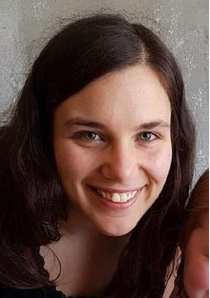 Michaela Jenaisse Carter is studying for her Bachelor of Arts in Sustainability and Development at La Trobe University in Melbourne Australia. In Australia, she is involved in community organising through the Equality, Sustainability and Peace Collective, Australian Youth Climate Coalition and Fossil Free La Trobe. In her spare time Michaela can be found climbing trees, getting her hands in the dirt and drinking strong Italian coffee! Michaela Jenaisse Carter is studying for her Bachelor of Arts in Sustainability and Development at La Trobe University in Melbourne Australia. In Australia, she is involved in community organising through the Equality, Sustainability and Peace Collective, Australian Youth Climate Coalition and Fossil Free La Trobe. In her spare time Michaela can be found climbing trees, getting her hands in the dirt and drinking strong Italian coffee!
|
Tuesday, February 28
| 10:30 a.m.–12:30 p.m. | "Laughing into the Abyss: On Comic Fiction in Uncertain Times," Scott Nadelson [Anne Bowden], Kaneko Auditorium In this talk on the craft and process of narrative writing, Professor Scott Nadelson explores the relationship between comedy and lamentation in classic and contemporary fiction. He examines work by the Coen brothers, Nikolai Gogol, and Penelope Fitzgerald—with diversions to Lenny Bruce, Sarah Silverman, Richard Pryor, and The Office—to understand how writers use comedy to wrestle with the complexities of mortality, grief, faith, and compassion. In the second half of the session, he will read excerpts from his recent novel, Between You and Me.
|
| 1:30 – 3:30 p.m. | "Great Decisions: Trade and Politics," Jim Hanson [Jeanette Flaming], Kaneko Auditorium TRADE AND POLITICS: The U.S. political mood toward trade has gone sour. One need look no further than the 2016 presidential contest for the popular narrative: trade means that China wins, at United States' expense. But do the numbers support that conclusion? The metrics used to gauge economic strength–Gross Domestic Product and balance of trade–have not kept up with the realities of modern manufacturing. Obtaining an accurate picture of U.S. economic stature requires a critique of those numbers. Only then can the U.S. develop appropriate policy solutions for the challenges at hand.
|


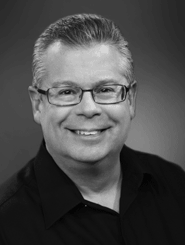 Debussy was a powerful influence on Igor Stravinsky, who absorbed the French composer's use of pedals and ostinati and his avoidance of traditional pitch collections. But Stravinsky goes further in his creation of complex webs of interactive thematic lines, and unlike that of Debussy, Stravinsky's music exudes a powerful sense of kinetic energy and drive through the use of asymmetrical rhythms. Key elements of Stravinsky's innovative genius are manifest in his groundbreaking Rite of Spring of 1912.
Debussy was a powerful influence on Igor Stravinsky, who absorbed the French composer's use of pedals and ostinati and his avoidance of traditional pitch collections. But Stravinsky goes further in his creation of complex webs of interactive thematic lines, and unlike that of Debussy, Stravinsky's music exudes a powerful sense of kinetic energy and drive through the use of asymmetrical rhythms. Key elements of Stravinsky's innovative genius are manifest in his groundbreaking Rite of Spring of 1912.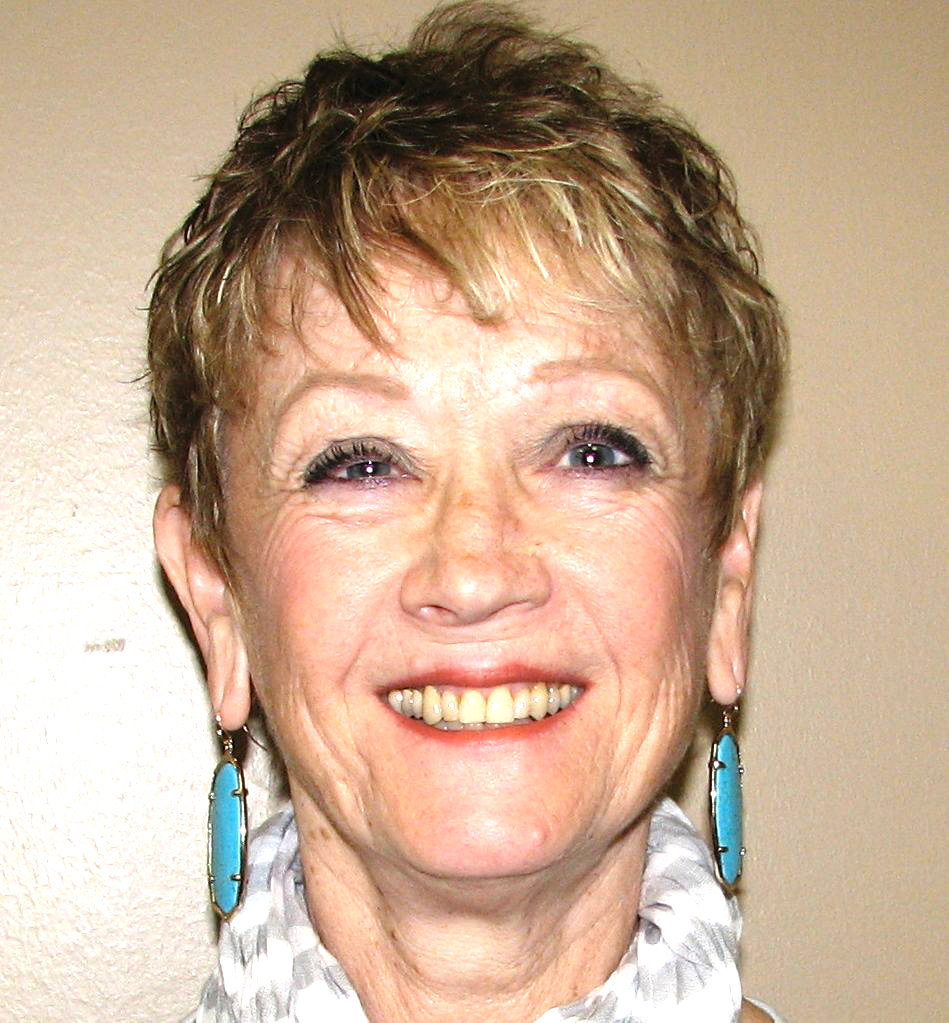 Our presenter is ICL member and WOU Music Professor Emerita Solveig Holmquist
Our presenter is ICL member and WOU Music Professor Emerita Solveig Holmquist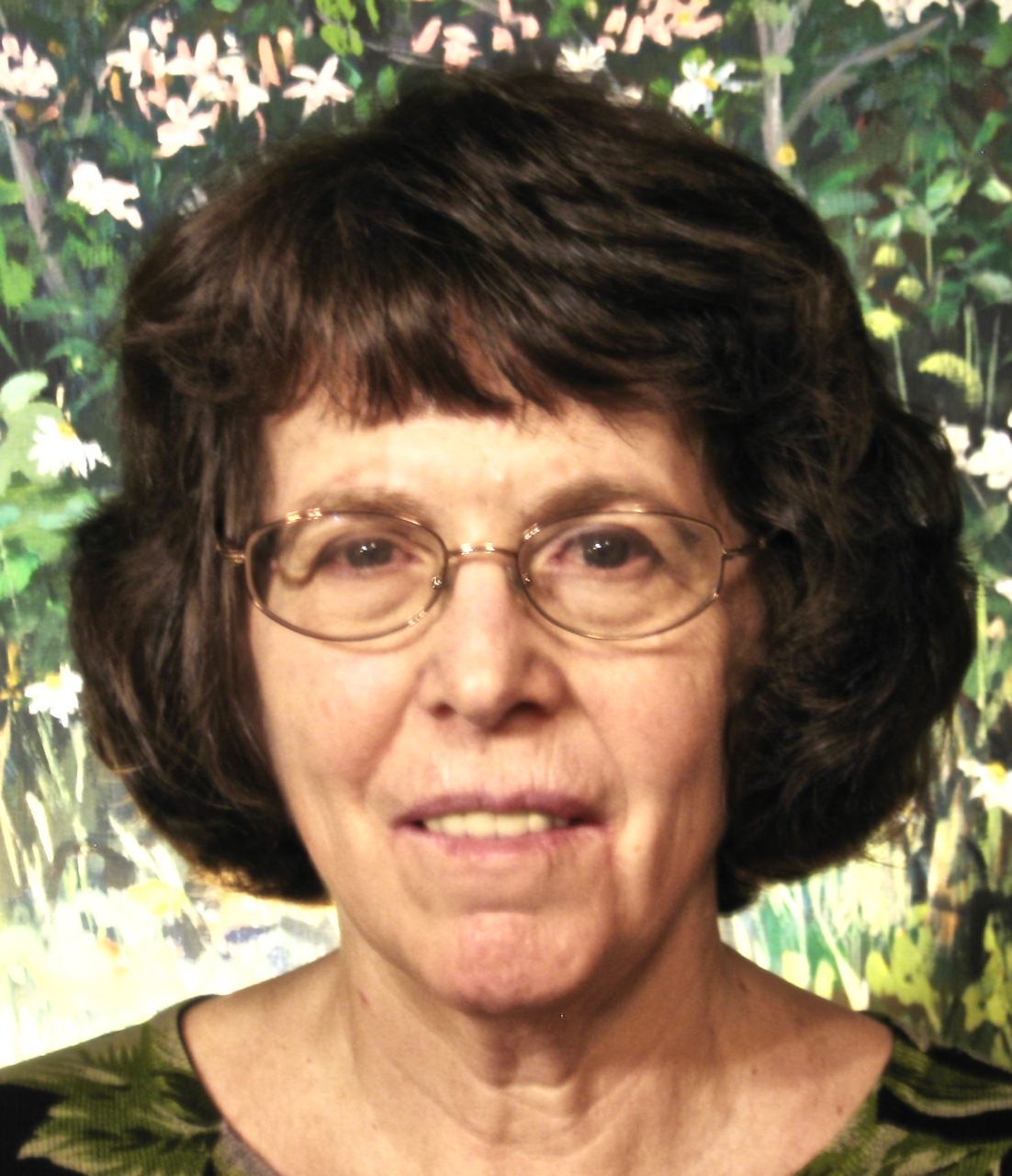 Share Lois Rosen’s journey as a writer of fiction and poetry. She will flavor her presentation with anecdotes from her life, real and imagined, turned into poems and prose. She will also talk about publishing, the ICL Writing Group, and provide an opportunity to write.
Share Lois Rosen’s journey as a writer of fiction and poetry. She will flavor her presentation with anecdotes from her life, real and imagined, turned into poems and prose. She will also talk about publishing, the ICL Writing Group, and provide an opportunity to write.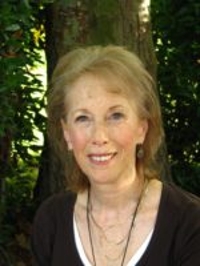 Marilyn Johnston is a Salem writer and filmmaker. She is a recipient of an Oregon Literary Arts Fellowship for Writers and winner of the Donna J. Stone National Literary Award for Poetry. Red Dust Rising, her collection of poems about her family’s recovery from war, was nominated for the Pushcart Prize. She works as a writing instructor in the Art + Poetry: Artists in Residence in the Schools Program.
Marilyn Johnston is a Salem writer and filmmaker. She is a recipient of an Oregon Literary Arts Fellowship for Writers and winner of the Donna J. Stone National Literary Award for Poetry. Red Dust Rising, her collection of poems about her family’s recovery from war, was nominated for the Pushcart Prize. She works as a writing instructor in the Art + Poetry: Artists in Residence in the Schools Program.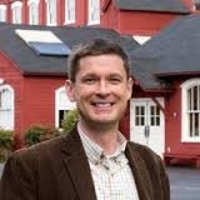 Bob H. Reinhardt is the author of The End of a Global Pox: America and the Eradication of Smallpox in the Cold War Era (University of North Carolina Press). He received his PhD in history from the University of California, Davis, and is currently the Executive Director of the Willamette Heritage Center in Salem, Oregon, where he works in the fields of environmental and public history, in addition to ongoing research in the history of public health.
Bob H. Reinhardt is the author of The End of a Global Pox: America and the Eradication of Smallpox in the Cold War Era (University of North Carolina Press). He received his PhD in history from the University of California, Davis, and is currently the Executive Director of the Willamette Heritage Center in Salem, Oregon, where he works in the fields of environmental and public history, in addition to ongoing research in the history of public health.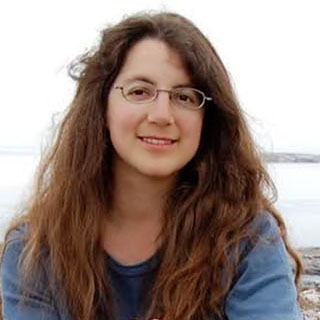
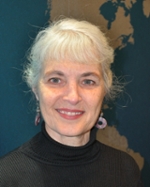 Vivien Tsu is Associate Director of PATH’s* Reproductive Health Global Program and director of its Cervical Cancer Prevention project. She is also an Affiliate Professor of Epidemiology at the University of Washington (UW). Dr. Tsu holds an M.A. in African History from UC Berkeley, an M.P.H. from UCLA, and a Ph.D. in epidemiology from the UW. In her 30 years at PATH she has carried out a variety of studies evaluating new technologies and innovative approaches to public health problems related to the health of women and children. She spent a year in Zimbabwe as a Fulbright Fellow doing research on maternal health and obstetric complications. She has published more than 70 papers in peer-reviewed journals. Her work in women’s cancers has spanned more than 20 years, starting with studies to validate new screening methods for cervical cancer like visual inspection and practical strategies like screen-and-treat in settings where complex diagnostic services are not feasible. She headed a team at PATH that collected ground-breaking data on the feasibility of delivering HPV vaccine to young adolescent girls in low-income countries. Her work in breast cancer started 15 years ago in Ukraine, where PATH carried out a 4-year project to strengthen breast health services, from screening and diagnosis to treatment and healthy survivorship. She is currently involved in the design and evaluation of PATH’s innovative collaboration with the National Cancer Institute of Peru to bring breast health services to the community level in rural Peru.
Vivien Tsu is Associate Director of PATH’s* Reproductive Health Global Program and director of its Cervical Cancer Prevention project. She is also an Affiliate Professor of Epidemiology at the University of Washington (UW). Dr. Tsu holds an M.A. in African History from UC Berkeley, an M.P.H. from UCLA, and a Ph.D. in epidemiology from the UW. In her 30 years at PATH she has carried out a variety of studies evaluating new technologies and innovative approaches to public health problems related to the health of women and children. She spent a year in Zimbabwe as a Fulbright Fellow doing research on maternal health and obstetric complications. She has published more than 70 papers in peer-reviewed journals. Her work in women’s cancers has spanned more than 20 years, starting with studies to validate new screening methods for cervical cancer like visual inspection and practical strategies like screen-and-treat in settings where complex diagnostic services are not feasible. She headed a team at PATH that collected ground-breaking data on the feasibility of delivering HPV vaccine to young adolescent girls in low-income countries. Her work in breast cancer started 15 years ago in Ukraine, where PATH carried out a 4-year project to strengthen breast health services, from screening and diagnosis to treatment and healthy survivorship. She is currently involved in the design and evaluation of PATH’s innovative collaboration with the National Cancer Institute of Peru to bring breast health services to the community level in rural Peru.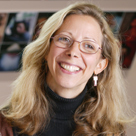 Associate Professor of Anthropology, Joyce Millen, has been teaching medical anthropology and African Studies at Willamette University since 2005. Prior to joining the Willamette faculty she was Director of the Institute for Health and Social Justice of Partners In Health in Boston, MA where she also taught in the Department of Social Medicine at Harvard Medical School. In addition to a doctorate in medical anthropology, she also holds degrees in public health and international relations. She has conducted extensive ethnomedical and epidemiological research in West Africa, particularly in Senegal where she lived for over eight years. Millen’s current research explores “diasporas for development” within the specific context of Africa's crisis in human resources for health.
Associate Professor of Anthropology, Joyce Millen, has been teaching medical anthropology and African Studies at Willamette University since 2005. Prior to joining the Willamette faculty she was Director of the Institute for Health and Social Justice of Partners In Health in Boston, MA where she also taught in the Department of Social Medicine at Harvard Medical School. In addition to a doctorate in medical anthropology, she also holds degrees in public health and international relations. She has conducted extensive ethnomedical and epidemiological research in West Africa, particularly in Senegal where she lived for over eight years. Millen’s current research explores “diasporas for development” within the specific context of Africa's crisis in human resources for health.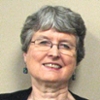
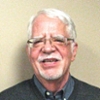 ICL Members Janet and Roger Budke have produced a slide show describing the life of Janet’s grandfather Peter. Peter was a Swedish immigrant, entering the US at age 15, accompanied by his step-brother. Peter was a self-made man, to put it mildly. He had about an eighth grade education, but that did not stop him. He homesteaded in Snohomish County, WA and worked for Jim Hill putting the Great Northern RR over Stevens Pass. Then on to the Yukon, making four trips from ‘97 through ‘00. Although he never mined gold, he certainly made some at various endeavors. From there it was building railroad for the Canadian National RR in B.C. After that he became a real estate developer in downtown Everett, WA and a Snohomish County Commissioner for a couple of terms. The slide show is an overview of an immigrant, who led a very ambitious and interesting life, becoming a family man, a community leader and a builder.
ICL Members Janet and Roger Budke have produced a slide show describing the life of Janet’s grandfather Peter. Peter was a Swedish immigrant, entering the US at age 15, accompanied by his step-brother. Peter was a self-made man, to put it mildly. He had about an eighth grade education, but that did not stop him. He homesteaded in Snohomish County, WA and worked for Jim Hill putting the Great Northern RR over Stevens Pass. Then on to the Yukon, making four trips from ‘97 through ‘00. Although he never mined gold, he certainly made some at various endeavors. From there it was building railroad for the Canadian National RR in B.C. After that he became a real estate developer in downtown Everett, WA and a Snohomish County Commissioner for a couple of terms. The slide show is an overview of an immigrant, who led a very ambitious and interesting life, becoming a family man, a community leader and a builder.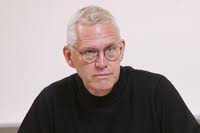 Roger Hull, Willamette Professor Emeritus of Art History and Senior Faculty Curator, Hallie Ford Museum of Art, returns to ICL to talk about Oregon artist, Louis Bunce and the current exhibition: "Louis Bunce: Dialogue with Modernism" (January 21 – March 26, 2017).
Roger Hull, Willamette Professor Emeritus of Art History and Senior Faculty Curator, Hallie Ford Museum of Art, returns to ICL to talk about Oregon artist, Louis Bunce and the current exhibition: "Louis Bunce: Dialogue with Modernism" (January 21 – March 26, 2017). 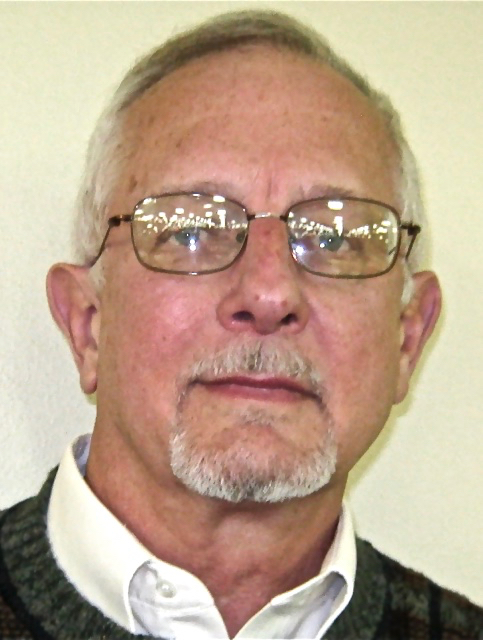 ICL member Bob Muir will share reflections concerning these events based on his experience as an Oregon Assistant Attorney General, who served on the State's constitution and election litigation teams.
ICL member Bob Muir will share reflections concerning these events based on his experience as an Oregon Assistant Attorney General, who served on the State's constitution and election litigation teams.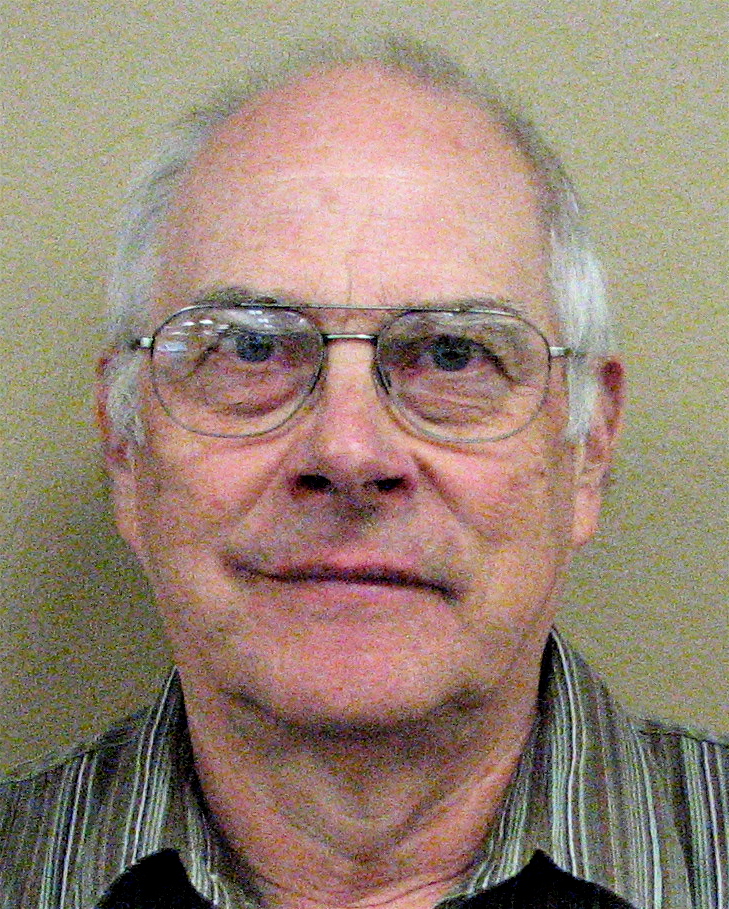 In preparation for our study of Understanding Genetics, ICL member Grant Thorsett will give us an overview of the fundamental terms of molecular biology that will become common vocabulary as we progress through our series.
In preparation for our study of Understanding Genetics, ICL member Grant Thorsett will give us an overview of the fundamental terms of molecular biology that will become common vocabulary as we progress through our series.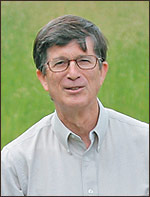
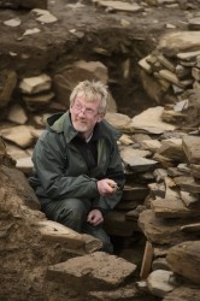 Nick Card is Senior Projects Manager, Orkney Research Centre for Archaeology, Britain. He is the Archaeological Institute of America’s international Kress Lecturer this year and Willamette is his host institution. He is visiting WU this week and will make this joint ICL presentation with Professor Scott Pike.
Nick Card is Senior Projects Manager, Orkney Research Centre for Archaeology, Britain. He is the Archaeological Institute of America’s international Kress Lecturer this year and Willamette is his host institution. He is visiting WU this week and will make this joint ICL presentation with Professor Scott Pike. 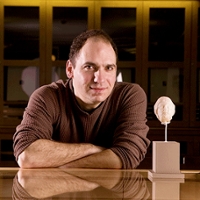 Scott Pike
Scott Pike
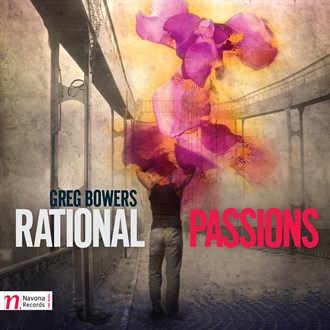
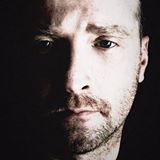 Dr. Greg Bowers will present and discuss music from his recently released album, "Rational Passions." The music seeks to combine emotions, meaning and perception in new ways.
Dr. Greg Bowers will present and discuss music from his recently released album, "Rational Passions." The music seeks to combine emotions, meaning and perception in new ways. Tatiana De Lucia is a study-abroad student from John Cabot University, located in Rome, who is majoring in International Affairs with a minor in Economics. At Willamette University, she is taking mainly economic- and politics-based classes. Her favorite hobby is to travel the world, to meet new people from all around the world, and to listen to music, a lot of music. For her future studies, Tatiana is interested in global crime, justice, security, and she would like to do a master's and a PhD in this area, since she wants to know more about different theoretical perspectives on global crime, justice and security and the ways in which these issues play out in specific contexts.
Tatiana De Lucia is a study-abroad student from John Cabot University, located in Rome, who is majoring in International Affairs with a minor in Economics. At Willamette University, she is taking mainly economic- and politics-based classes. Her favorite hobby is to travel the world, to meet new people from all around the world, and to listen to music, a lot of music. For her future studies, Tatiana is interested in global crime, justice, security, and she would like to do a master's and a PhD in this area, since she wants to know more about different theoretical perspectives on global crime, justice and security and the ways in which these issues play out in specific contexts.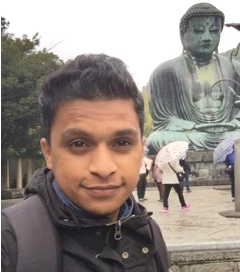 Jawad Babu Mukkath Puliyakottu was born and lived in India until the age of 16. At age 16 he felt the urgency to move out of his comfort zone and moved to Japan. He spent two years of high school there before receiving a full time scholarship for four years of college life at Tokyo International University. Jawad is fascinated by how people and at times countries of contrasting cultural backgrounds come together and work for some common goal. This desire encouraged him to major in International Relations, where countries, culture, and people around the globe are the subjects. Thanks to TIU’s partnership with Willamette University, he was able to transfer here to Willamette. He is looking forward to making the most of his time while here and explore around.
Jawad Babu Mukkath Puliyakottu was born and lived in India until the age of 16. At age 16 he felt the urgency to move out of his comfort zone and moved to Japan. He spent two years of high school there before receiving a full time scholarship for four years of college life at Tokyo International University. Jawad is fascinated by how people and at times countries of contrasting cultural backgrounds come together and work for some common goal. This desire encouraged him to major in International Relations, where countries, culture, and people around the globe are the subjects. Thanks to TIU’s partnership with Willamette University, he was able to transfer here to Willamette. He is looking forward to making the most of his time while here and explore around.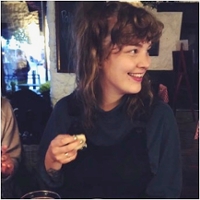 Johanna Järvinen is doing her masters degree in Sociology and Gender Studies in University of Jyväskylä in Finland after completing her BA in Sociology at Goldsmiths College, University of London. At Willamette she’s studying a range of topics at the departments of religious studies, anthropology and civic communication & media. Back in Helsinki Johanna is involved with an organisation that aims to empower girls, women and those who do not conform to binary gender roles in the music scene by organising band camps, workshops and events. She also plays bass and drums in a few bands and is involved in other projects related to music and social justice.
Johanna Järvinen is doing her masters degree in Sociology and Gender Studies in University of Jyväskylä in Finland after completing her BA in Sociology at Goldsmiths College, University of London. At Willamette she’s studying a range of topics at the departments of religious studies, anthropology and civic communication & media. Back in Helsinki Johanna is involved with an organisation that aims to empower girls, women and those who do not conform to binary gender roles in the music scene by organising band camps, workshops and events. She also plays bass and drums in a few bands and is involved in other projects related to music and social justice.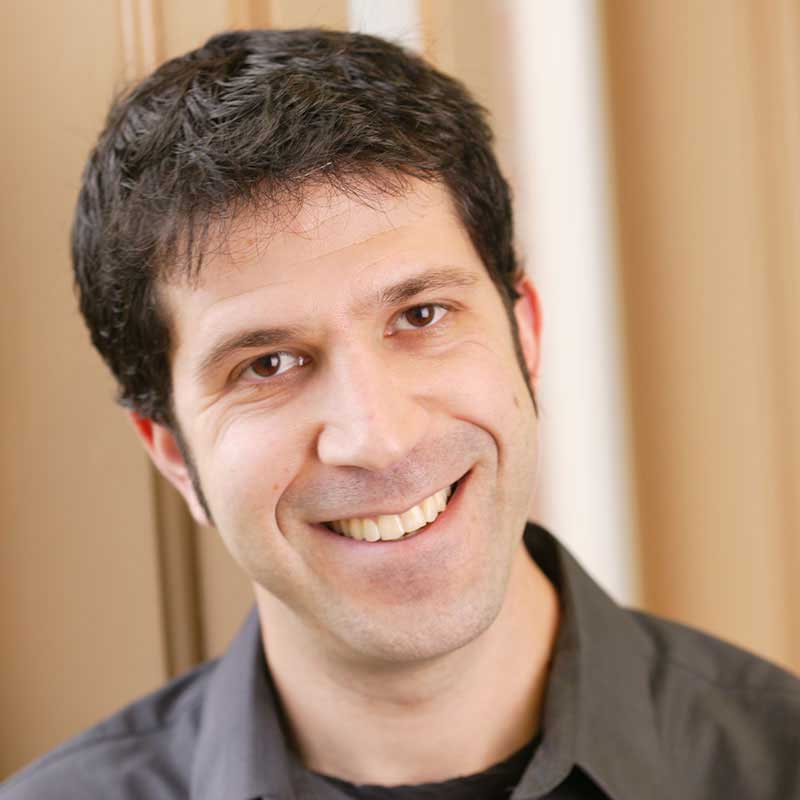 Scott Nadelson is associate professor of English and Hallie Ford Chair in Writing at Willamette University. The author of three story collections, a memoir, and a novel, he is the winner of the Reform Judaism Fiction Prize, the Great Lakes Colleges Association New Writers Award, and an Oregon Book Award. He also serves on the faculty of the Rainier Writing Workshop MFA Program at Pacific Lutheran University.
Scott Nadelson is associate professor of English and Hallie Ford Chair in Writing at Willamette University. The author of three story collections, a memoir, and a novel, he is the winner of the Reform Judaism Fiction Prize, the Great Lakes Colleges Association New Writers Award, and an Oregon Book Award. He also serves on the faculty of the Rainier Writing Workshop MFA Program at Pacific Lutheran University.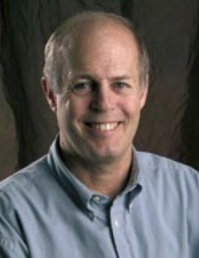 Jim Hanson, a retired Willamette Professor of Economics, will be our presenter. He received the Richard Iltis Award for Lifetime Achievement, presented by the Mortar Board to a retiring professor for a lifetime of honorable service to the students, staff, university, community and their profession. Prof. Hanson has been a member of the economics faculty since 1976. He taught courses on the economics of developing countries, international economics and macroeconomics.
Jim Hanson, a retired Willamette Professor of Economics, will be our presenter. He received the Richard Iltis Award for Lifetime Achievement, presented by the Mortar Board to a retiring professor for a lifetime of honorable service to the students, staff, university, community and their profession. Prof. Hanson has been a member of the economics faculty since 1976. He taught courses on the economics of developing countries, international economics and macroeconomics.